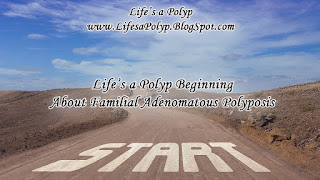Wednesday, May 30, 2012
Break in the Storm
In the midst of a large storm, beyond obvious concerns of physical and possessional safety, I found myself repeatedly concerned with bowel safety. Making silent appeals to the universe for the power to stop flickering and remain on without further difficulty and for the weather to remain mild enough that we may remain at home without danger to ourselves in fear of not having access to a restroom.
Do you ever find yourself with such concerns?
When growing up, our home had a well rather than using the town's water and everytime the power went out, so did our ability to use the restroom. If we had enough weather notice to suspect power interference then we would fill several gallon buckets of water in order to restock the toilet tank. Depending on the length of the power outage I would then be forced to flee to city to stay with relatives.
Even to this day, in spite of having access to city water, I still find myself worrying about power outages in relation to restroom access.
Or the fear of the house becoming so damaged from a severe storm resulting in leaving the property or becoming trapped in the house and injured like so many that are viewed on the news channels. Think of the additional injury of being found in a compromising situation due to SBS or other health issues brought on by crisis situations or fleeing for safety without adequate accomodations or when necessary.
Perhaps these are silly or irrelevant concerns to others, but to us with our lives constantly being assaulted by health concerns and bathroom habits, is it a surprise that even during times of potential crisis that we concern ourselves with the most basic needs?
 This is my life with Familial Adenomatous Polyposis and Short Bowel Syndrome.
I was diagnosed with FAP as a child, underwent total colectomy at age 9. I experienced life threatening complications resulting in 4 more surgeries that year and developing medical PTSD. I had an ileostomy for 6 years before having it reversed into a straight pull-thru that also resulted in life threatening complications requiring an additional surgery the following year. In 2021, I required my 8th surgery to remove my gall bladder due to gall stones and FAP. This surgery exacerbated my, at the time undiagnosed, Abdominal Migraine which is now being treated.
This is my life with Familial Adenomatous Polyposis and Short Bowel Syndrome.
I was diagnosed with FAP as a child, underwent total colectomy at age 9. I experienced life threatening complications resulting in 4 more surgeries that year and developing medical PTSD. I had an ileostomy for 6 years before having it reversed into a straight pull-thru that also resulted in life threatening complications requiring an additional surgery the following year. In 2021, I required my 8th surgery to remove my gall bladder due to gall stones and FAP. This surgery exacerbated my, at the time undiagnosed, Abdominal Migraine which is now being treated.
Sunday, May 20, 2012
Evils of Food
There are so many activities and hobbies that I enjoy that I want to participate in but sometimes I just can't. Sometimes walking inside from the car is a difficult task in itself much less any real physically strenuous activity.
The evils of food, that wonderful tasting, life preserving particles of food create infuriating, excruciating obstacles. How I hate thou!
Due to having a total colectomy and the majority of my small intestine removed, I have Short Bowel Syndrome and must take medicine to help keep my stomach and bowel calm and controlled in order to function. In addition to SBS issues, food also causes severe stomach pain, cramping, and a delightful soundtrack of very loud stomach rumblings that you can even see move across my stomach like some alien life form trying to break forth from my abdomen. Granted, the rumblings and pain have improved some since the subsequent years after my last two surgeries. My stomach noises could easily be heard across a very large room and once caused my professor to literally jump in the air in fright. I previously absolutely could not allow myself to eat any ethnic foods due to debilitating pain for the period of 1-2 days. Now I am able to eat a variety of foods as long as I'm wise about my intake.
My itinerary isn't planned out by what I want to do but what I think I will be able to do, depending on how my stomach and intestine is reacting to the food I've eaten. And not just the food I've eaten recently or even anytime during that day, but what I've eaten the day before. You see, there are an extreme amount of variables related to food that affect my body and it's performance. I must consider:
- How do I feel the day before the activity
- What did I eat the day before the activity - best to eat something light and small
- Am I having a lot of stomach pain and cramping
- What time do I need to wake up in the morning in order to allow my stomach/bowel medicine to start to work
- Mustn't eat breakfast if it can be helped
- If my medicine still hasn't started working, I must weigh the benefit vs the harm of eating breakfast as sometimes breakfast will cause my medicine to kick in but other times it will make my bowel worse thus the debate
- Don't eat anything else until after the activity and drink very little fluids until afterwards
- Stand and walk as little as possible until activity has started
- Take sitting breaks as frequent and as long as possible during activity in order to prolong ability to participate in activity
If any of these variables come into play, the activity is frequently very difficult to participate in and enjoy.
I need to make a distinction, that my diet habits to help control my health issues and to feel good are not bound by the same diet recommendations of Crohn's and Ulcerative Colitis.
Those with Crohn's and UC frequently are recommended to following certain diet protocols as certain foods will increase or agitate inflammation causing symptoms to worsen.
For me, food in general is upsetting to my body. I feel my very best when I don't eat. When I don't eat I am not struck with stomach pain and cramps from eating or SBS issues. Only problems are that I really enjoy the taste of food and one must eat to survive.
So I try to eat light, non-greasy, small portion foods whenever possible as these do not upset my stomach and bowel as much as a heavy, large meal does.
I don't know if there is another that experiences the same issues with food in the same way as I do, although I imagine it is similar to Crohn's and UC flare ups. But either way, it makes the day very hard to plan.
 This is my life with Familial Adenomatous Polyposis and Short Bowel Syndrome.
I was diagnosed with FAP as a child, underwent total colectomy at age 9. I experienced life threatening complications resulting in 4 more surgeries that year and developing medical PTSD. I had an ileostomy for 6 years before having it reversed into a straight pull-thru that also resulted in life threatening complications requiring an additional surgery the following year. In 2021, I required my 8th surgery to remove my gall bladder due to gall stones and FAP. This surgery exacerbated my, at the time undiagnosed, Abdominal Migraine which is now being treated.
This is my life with Familial Adenomatous Polyposis and Short Bowel Syndrome.
I was diagnosed with FAP as a child, underwent total colectomy at age 9. I experienced life threatening complications resulting in 4 more surgeries that year and developing medical PTSD. I had an ileostomy for 6 years before having it reversed into a straight pull-thru that also resulted in life threatening complications requiring an additional surgery the following year. In 2021, I required my 8th surgery to remove my gall bladder due to gall stones and FAP. This surgery exacerbated my, at the time undiagnosed, Abdominal Migraine which is now being treated.
Tuesday, May 15, 2012
The FAP Beginning
For those of you that are new to the world of FAP, you must first understand the genetic disease.
Briefly, Familial Adenomatous Polyposis is a rare hereditary genetic mutation on the APC gene that predisposes an individual to colon cancer due to hundreds to thousands of precancerous polyps developing in the colon at an early age. Those with FAP develop significantly more polyps and at an earlier age than those without FAP. If the FAP polyps are not treated, the individual will inevitably develop colon cancer. Due to the autosomal dominant hereditary nature of FAP, the offspring of an affected individual has a 50% chance of inheriting FAP.
There are associated manifestations of FAP as well. These include:
- Congenital hypertrophy of retinal pigment epithelium (CHRPE)
- Osteomas, supernumerary teeth, odontomas
- Desmoids, fibromas, epidermoid cysts
- Stomach, duodenal, and other small bowel adenomas
- Gastric fundic gland polyps
- Brain tumors
- Increased Risk for Gastric Cancers and cancers of the Thyroid, Pancreas, Liver, Central Nervous System, Adrenal, and Bile Ducts
FAP is sometimes referred to as Gardner's Syndrome. This was described as a variation early on, prior to the level of understanding about FAP that is now known and is no longer acknowledged by the National Comprehensive Cancer Network (NCCN).
FAP occurs due to a mutation on the APC gene and has been associated with mutations between codons 178 and 309, between codons 409 and 1,580, corresponding to exons 5-8, 9-14 and the first half of the large final exon. While the APC gene is the only gene identified to lead to FAP, there have been over 300 different variations of mutations found on the APC gene thus far.
Attenuated FAP is a variation characterized by a significant risk for colon cancer but fewer colonic polyps (average of 30), more proximally located polyps, and diagnosis of colon cancer at a later age; management may be substantially different. AFAP mutation on the APC gene is usually associated with mutations at the extreme 5' (before codon 157) and 3' (after codon 1,595) ends of the APC gene, and in the alternatively spliced region of exon 9 (codons 213-412).
If a brain tumor occurs in someone with either FAP or a hereditary non-polyposis colorectal cancer condition, it has been referred to previously as Turcot Syndrome. However, the NCCN recommends against using this term as it is imprecise.
NCCN recommends genetic testing to occur in infancy for children suspected of having FAP with colonoscopies occurring annually upon age 10, if symptoms do not present earlier requiring colonoscopy. For monitoring of hepatoblastoma to occur every 3-6 months from birth to age 5. NCCN guidelines also provide detailed recommended monitoring guidelines for the additional cancer risks associated with FAP. These can be viewed by creating a free account with NCCN.
To learn more about Familial Adenomatous Polyposis visit these resources:
- National Comprehensive Cancer Network - FAP Guidelines for Testing and Management. Updated Annually
- Hereditary Colon Cancer Foundation Patient Guide to FAP. 2015
- National Organization for Rare Disorders FAP Report. 2014
- StatPearls: Familial Adenomatous Polyposis. 2023
- Medscape: Familial Adenomatous Polyposis Report. 2019
- The Genetic Basis of Familial Adenomatous Polyposis and its Implications for Clinical Practice and Risk Management. 2015
Labels:
Cancer,
FAP information,
Health,
history,
Symptoms
 This is my life with Familial Adenomatous Polyposis and Short Bowel Syndrome.
I was diagnosed with FAP as a child, underwent total colectomy at age 9. I experienced life threatening complications resulting in 4 more surgeries that year and developing medical PTSD. I had an ileostomy for 6 years before having it reversed into a straight pull-thru that also resulted in life threatening complications requiring an additional surgery the following year. In 2021, I required my 8th surgery to remove my gall bladder due to gall stones and FAP. This surgery exacerbated my, at the time undiagnosed, Abdominal Migraine which is now being treated.
This is my life with Familial Adenomatous Polyposis and Short Bowel Syndrome.
I was diagnosed with FAP as a child, underwent total colectomy at age 9. I experienced life threatening complications resulting in 4 more surgeries that year and developing medical PTSD. I had an ileostomy for 6 years before having it reversed into a straight pull-thru that also resulted in life threatening complications requiring an additional surgery the following year. In 2021, I required my 8th surgery to remove my gall bladder due to gall stones and FAP. This surgery exacerbated my, at the time undiagnosed, Abdominal Migraine which is now being treated.
Subscribe to:
Posts (Atom)



